WILD WILD COUNTRY Interview: Chapman & Maclain Way, Directors
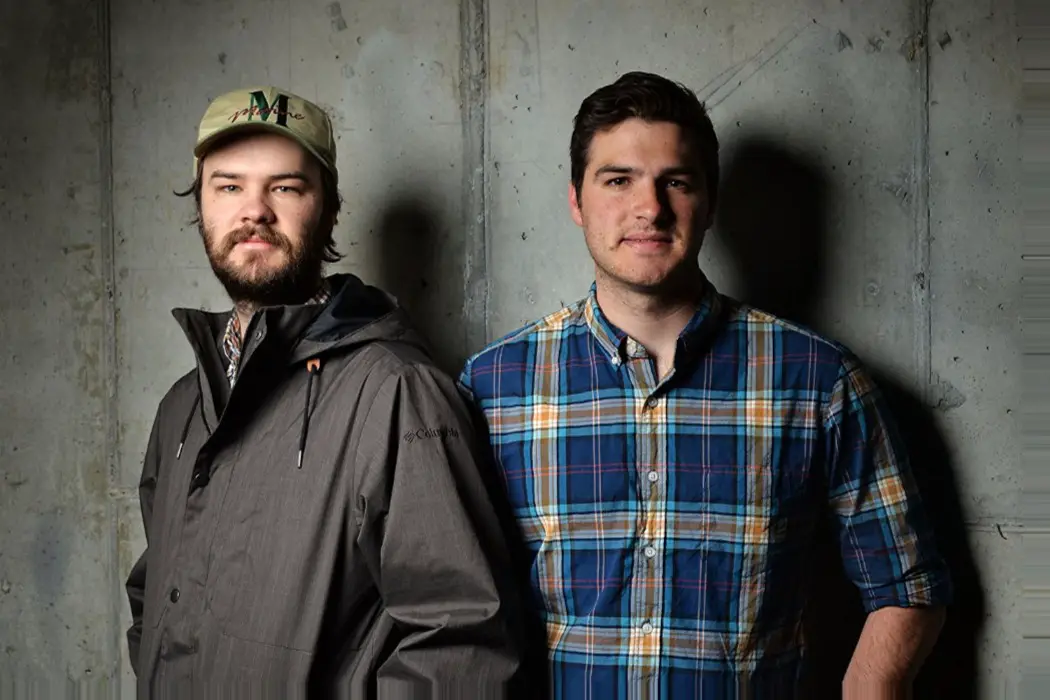
Kristy Strouse is the Owner/Editor in Chief of Film Inquiry,…
Brothers Chapman and Maclain Way co-direct the newest documentary on Netflix called Wild, Wild, Country. This is a story that seems to have gone unnoticed by most people, but that desperately deserves attention. It’s a hugely addicting, and entirely crazy tale that manages to intrigue you for over six hours. I was able to chat with both of the directors/brothers about undertaking this juggernaut of a project, and what went into it!
Congratulations on the documentary, it’s truly a captivating series! I was really hooked!
Chapman and Maclain Way: Thanks for taking the time to speak with us, we really appreciate it!
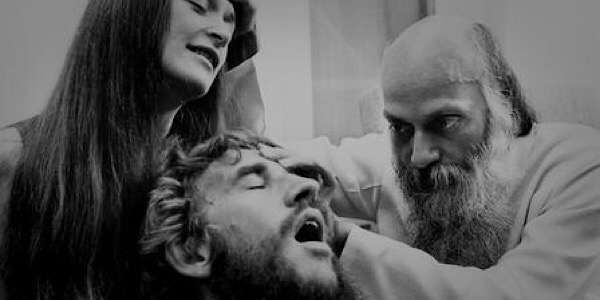
First off, what drew you to this project?
Maclain Way: Basically, it was a little bit of an unusual connection. We had made a documentary in 2014 for Netflix, called The Battered Bastards of Baseball. And that was a baseball team that played in Portland, Oregon. So, through that story we got to work closely with a lot of different film archives throughout the pacific northwest. If you walk into a film archive in Oregon you’ll probably see a lot of tapes that say Bhagwan, or Rajneeshpuram on them. And curiosity kind of get the best of me and I wanted to see what this story was, and what it was about.
So, I actually ended up talking to someone from the film archives about it, and he was familiar was the story, and I wasn’t at all. He told me about this group that came to Oregon, and they bought a 64,000 acre ranch, and they spent 120 million dollars building this sort of Utopian dream that they had. And then he said they started bussing in homeless people, and sort of started taking over Wasco county. Then of course, he told me how it ends up being the biggest case of bioterrorism, with the huge poisoning of over 700 people, and a large case of immigration fraud. When he was telling me this, I honestly wasn’t sure if he had gotten the story right or not.
But then we started watching some of the archives and immediately as filmmakers, we were attracted to not only the story, and the truer crimes elements of it, but also visually. My first impression was that I was watching these people dressed head to toe in red, building a 120 million dollar city in the middle of Oregon and it just seemed incredible to me that this had actually happened. So that was sort of the initial intrigue and then as I started diving in I started to reach out to people we would be interested in talking to about the story.
It immediately became clear that this was probably the most important thing that had ever happened to them in their life. As a documentary filmmaker you love to hear that, you love to hear that they have a stake in the story, and that they are passionate to tell it. So, at that point we started conceiving that maybe this shouldn’t be a feature. It’s so dense, and there are just so many twists and turns in it that I think a series would work out really well for it. And luckily, we got to team up with Mark and Jay Duplass, and we had worked with them before. They were a great distributor for the project. We were very thankful that we got to tell it on a longer canvas.
It sounded like you didn’t really know about this story going into it. Had you heard about it at all?
Chapman Way: No, we were both born after this whole saga happened. I was born in 1986, and Mac in 1991. We grew up just outside Los Angeles, and we were familiar with Jonestown and Waco, kind of like these big communal experiments. But the first time we heard about it was when we spoke with the archive. We were going into it completely not knowing anything.
I had never heard of it either, so I was in the same boat going in. It’s shocking not to have known about it, when you consider the scope and how much happened.
Chapman Way: Yeah, definitely. I think one of the most interesting things is that a year before the guru passed away he changed his name to Osho, and the organization went back and reprinted his books and took out the Oregon chapter for the biography. So, they sort of re-branded and whitewashed the history of the group. And I think through the years people just sort of forgot about it.
And today Osho is really well known within the spiritual and meditation community, this new age culture. So, a lot of people, especially in Europe and Australia and very familiar with the name Osho, but they have no recollection of him being part of this Rajneeshpuram experiment in the 80’s.
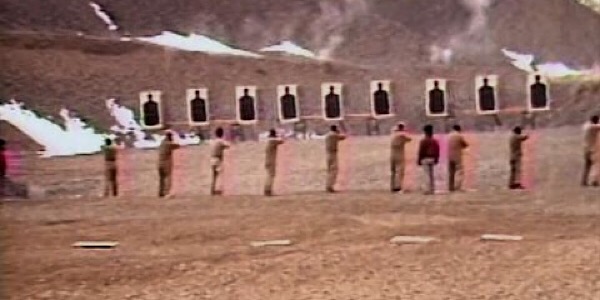
Mark [Duplass] had told me that you had over 300 hours of footage to wade through. What was that like? How did you go about choosing what made it into the film?
Maclain Way: Yeah, this was a story that from beginning to end, from when we first heard about it till we locked in our 6 episodes for the Sundance film festival, was about 4 years total. And it was about a year of research and just kind of learning the story, because it got kind of tone deaf and we really wanted to become almost experts on it. Then it was about a year of production, and we shot about 110 hours of interview footage. We had done a lot of interviews with a lot of people, but when it came to our talking heads as filmmakers we like to keep them limited so you really get to go along with them on a personal journey that they are going through.
Then it was about a year and ½ of editing that material down. So, we started with over 300 hours of archive and over 100 hours of interviews we had shot, and we had to whittle that down. It was supposed to be six one-hour episodes, but we usually went over a little on each, so it was more like six and ½ hours. And it is really what me and Chap do, I know we were coming into the Rajneeshpuram for the first time, but what we’ve really done in our career is make archival documentary films. We were attracted to telling these sort of old forgotten stories, and then reconnecting with the characters that this was incredibly important to. And kind of getting them to re-tell their story, and to see what had changed, and what had evolved. That was our creative process.
How was the distribution of work handled with the two of you working on it?
Chapman Way: I studied cinematography in college and I tend to take on a little bit more of the media work, like the editing, and filming. And Mac was a historian, a history major at UCLA. So, Mac really dived in and did a lot of the research and conducted a majority of the interviews. It’s really a great working relationship. It’s really a family project because my wife Juliana was the lead producer on it, and our older brother Brocker was the composer. The four of us got to work on it together for a few years now.
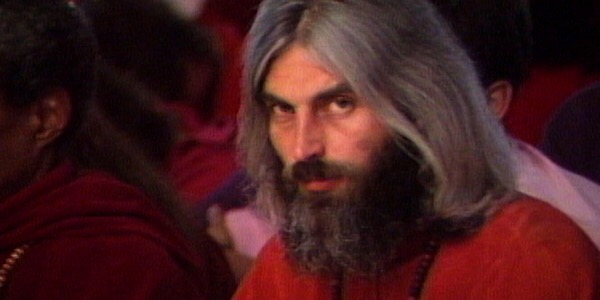
That’s great, I’m sure it was nice to work with family! I know it was kind of touched on before, but did you always plan on having it be a 6-part, 6-hour documentary? Did you have a goal of making it that long?
Chapman Way: So, it was around like 2014 when we first got the idea and it was kind of before the docuseries really took off in mainstream culture. It was before Making a Murderer and right before The Jinx came out. We really knew once we sort of dove in and started doing the research how complex the story was, and how many layers there were. If we had told it in a shorter form, say like 90 minutes, it would have been like cheapening the story.
So, we knew very early on the only way to do this was in a longer format. I think the distributors weren’t really quite sure if people would be interested in a longer story, so when we teamed up with Mark and Jay Duplass it really helped kind of strengthen our reasoning on why this would make such a great long-form series. They were really crucial in getting distribution for us, so we could make it that way.
I think it was a good choice. There is so much information packed into it, but honestly, it’s never dull or slow, you really put together everything well.
Maclain Way: Thank you, and I think that for Chap and me, making it in a longer form was easier in a lot of ways. I mean we might have spent just as much time had it been a feature, because we would have had to edit a lot of things out. I think it just serves the story better with a larger canvas to work with.
This is quite a scandalous true story, and there are two perspectives, two warring sides throughout. Those involved in Rajneeshpuram and then the towns [Antelope] people, politicians etc. How did you go about balancing that and staying objective? Because you two did a great job of that.
Maclain Way: Thank you! Honestly, from very early on we tried to stay away from having personal judgements of certain people. And really, we were just interested in hearing the words from the people that lived it and went through it themselves. We are not usually documentary filmmakers that will reach out to someone who had just written a book on this because its not that their opinion/perspective isn’t valuable, because it is, but its just for us, with our talking head documentaries, we like the people who were on the ground. We did try to incorporate two very different perspectives of the same event that had happened.
You’ll find that mostly between the Rajneesh camp and the Antelope camp. Really, that’s what the story was for us. I’m always happy when someone says that we stayed objective, and I’ll take that compliment, but that was the story. It helped serve the story and made it a better one to tell. It was about how these two groups became entrenched in a war with each other. And as current viewers you watch it and think “are they ever going to take a step towards compromise or mediation or conflict resolution?” As we researched the story and spoke with both sides of these two different camps, it just seemed like they were going farther, and farther apart as the story unfolds. So, that was always our objective.
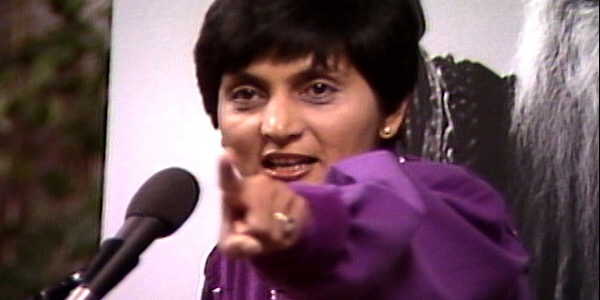
Was there anything in the process, that you learned, that really shocked you? I know there are a lot of unexpected things that happen.
Chapman Way: This is a little broader, but when dealing with these sort of… cult stories, usually the majority of the followers become ex-followers, and become very jaded and very cynical, and resentful of their experience. We interviewed a lot of the Sannyasins, and it was pretty incredible to hear how many of these people said that this was the greatest experience of their lives. And if they could, they would do it all over again in a heartbeat, and how many are still devoted to the guru’s meditations and teachings.
I think that was a little bit of an eye-opening experience, not just as a filmmaker, but as a human. Just because, as someone who’s not really spiritual or part of the new age culture, I don’t really identify with gurus. I like to consider myself an independent person. So, my knee jerk reaction, when you hear about a cult, was to be kind of dismissive about who they are and what their purpose was. To get their firsthand account, of what it meant to them, and what it means 30 years later was really eye-opening.
You actually spent a lot of time interviewing key people. Sheela especially had a very captivating presence. Mark [Duplass] had mentioned that some were hesitant to divulge certain details. She seemed very blunt. What was it like doing those interviews?
Chapman Way: When we first started getting the archive footage Sheela sort of jumped off the screen as this credible, kind of fascinating and captivating woman. And we knew right away that she had to be one of the main characters because she was just so vital in the operation. So, when we reached out to her it was pretty clear that she felt like she had never really gotten the opportunity to explain how this was happened, from her perspective. It was really interesting to sort of take the preconceptions we had of her before the interview and going to Switzerland, we spent five days interviewing her for about twenty hours of footage.
It was a really incredible experience to sit down with her and hear her perspective on these events. She’s very intelligent, and she speaks her mind. She was very certain of her convictions and ideologies, and that she was fighting the good fight. I think its going to be really interesting for audiences to hear what she went through and have to make sense of what this minority woman went through in Oregon in the early 80’s.

Do you have any idea going forward, of what you might be working on, or like to work on?
Chapman Way: We are kind of in development on two documentary series. I know this always sounds lame, but we can’t really talk about them too much, only because we are still in the process of getting the characters to kind of agree to do it. But, we are really excited about doing another documentary. We think the bigger canvas fits our skill set. It allows us to peel back the cultural layers, and political layers, and reexamine historical events through a new lens. Its just a format we are really excited about, and we are hoping that we get the opportunity with our next story to do that again.
Thanks again for taking the time to talk today, and I really enjoyed the series. You guys did a terrific job, and the work you put into it really paid off!
Maclain Way: Thank you so much. It means a lot. It is always tough at first, diving in, and this was the first series we had ever made where we edited it more on instinct, based on what we were finding interesting in the story, and trying to bring that out of it. And don’t let any filmmaker tell you, it’s always an awesome feeling when someone tells you that you did a great job, so thank you very much. It means a lot to us.
We want to thank Maclain Way and Chapman Way for speaking with us about their project.
Wild Wild Country is currently streaming on Netflix.
Does content like this matter to you?
Become a Member and support film journalism. Unlock access to all of Film Inquiry`s great articles. Join a community of like-minded readers who are passionate about cinema - get access to our private members Network, give back to independent filmmakers, and more.
Kristy Strouse is the Owner/Editor in Chief of Film Inquiry, writer, podcaster, and all around film and TV fanatic. She's also Head of Acquisitions at Tricoast Worldwide and is a member of The Online Association of Female Film Critics and The Hollywood Creative Alliance. She also has a horror website: Wonderfully Weird & Horrifying.













